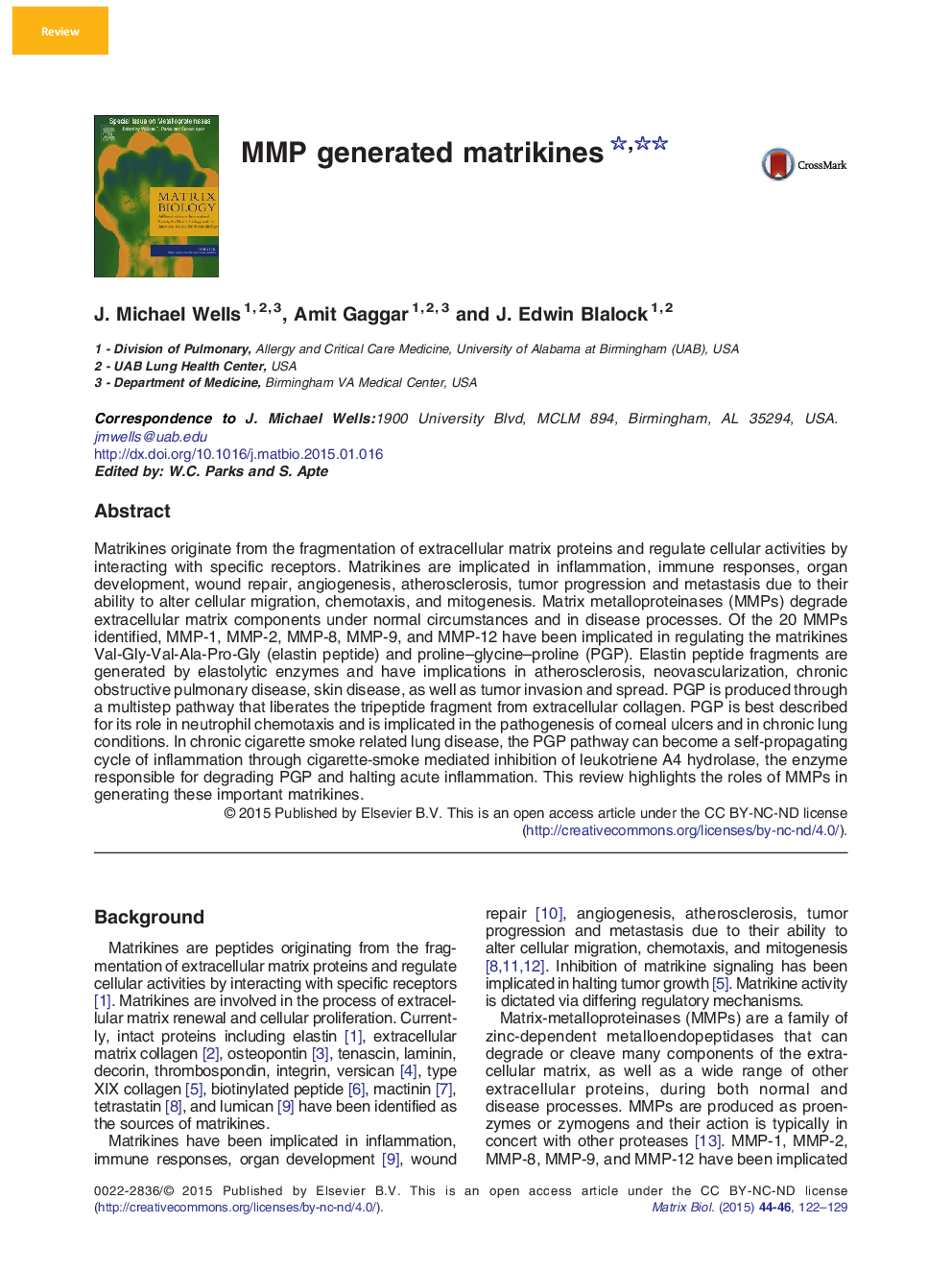| Article ID | Journal | Published Year | Pages | File Type |
|---|---|---|---|---|
| 2144718 | Matrix Biology | 2015 | 8 Pages |
•MMPs degrade extracellular matrix and regulate several matrikines.•MMP-generated matrikines have effects in cancer, vascular disease, and lung disease.•The elastin peptide (VGVAPG) increases expression of MMPs in connective tissues.•MMPs are crucial to generation of the matrikine PGP from ECM collagen.•PGP is a cigarette-smoke mediated neutrophil chemoattractant found in COPD.
Matrikines originate from the fragmentation of extracellular matrix proteins and regulate cellular activities by interacting with specific receptors. Matrikines are implicated in inflammation, immune responses, organ development, wound repair, angiogenesis, atherosclerosis, tumor progression and metastasis due to their ability to alter cellular migration, chemotaxis, and mitogenesis. Matrix metalloproteinases (MMPs) degrade extracellular matrix components under normal circumstances and in disease processes. Of the 20 MMPs identified, MMP-1, MMP-2, MMP-8, MMP-9, and MMP-12 have been implicated in regulating the matrikines Val-Gly-Val-Ala-Pro-Gly (elastin peptide) and proline–glycine–proline (PGP). Elastin peptide fragments are generated by elastolytic enzymes and have implications in atherosclerosis, neovascularization, chronic obstructive pulmonary disease, skin disease, as well as tumor invasion and spread. PGP is produced through a multistep pathway that liberates the tripeptide fragment from extracellular collagen. PGP is best described for its role in neutrophil chemotaxis and is implicated in the pathogenesis of corneal ulcers and in chronic lung conditions. In chronic cigarette smoke related lung disease, the PGP pathway can become a self-propagating cycle of inflammation through cigarette-smoke mediated inhibition of leukotriene A4 hydrolase, the enzyme responsible for degrading PGP and halting acute inflammation. This review highlights the roles of MMPs in generating these important matrikines.
